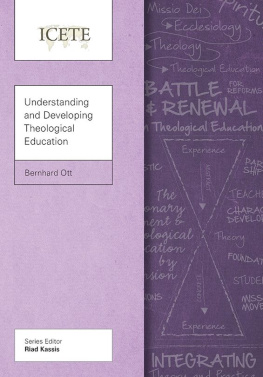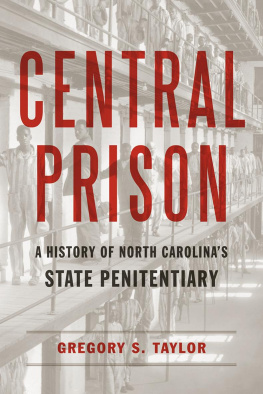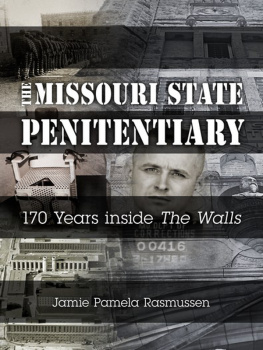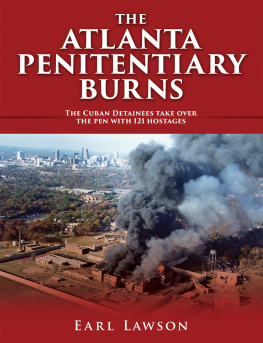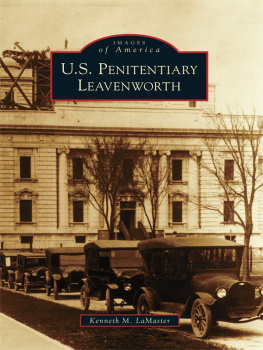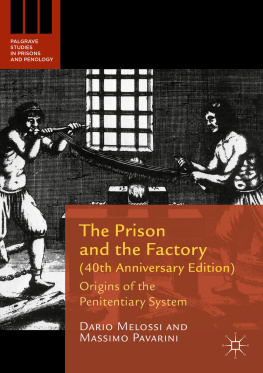A PROTESTANT PURGATORY
To my parents
Harald and Edna
A Protestant Purgatory
Theological Origins of the Penitentiary Act, 1779
LAURIE THRONESS
First published 2008 by Ashgate Publishing
Published 2016 by Routledge
2 Park Square, Milton Park, Abingdon, Oxon OX14 4RN
711 Third Avenue, New York, NY 10017, USA
Routledge is an imprint of the Taylor & Francis Group, an informa business
Copyright Laurie Throness 2008
Laurie Throness has asserted his moral right under the Copyright, Designs and Patents Act, 1988, to be identified as the author of this work.
All rights reserved. No part of this book may be reprinted or reproduced or utilised in any form or by any electronic, mechanical, or other means, now known or hereafter invented, including photocopying and recording, or in any information storage or retrieval system, without permission in writing from the publishers.
Notice:
Product or corporate names may be trademarks or registered trademarks, and are used only for identification and explanation without intent to infringe.
British Library Cataloguing in Publication Data
Throness, Laurie
A Protestant purgatory : theological origins of the Penitentiary Act, 1779
1. Great Britain. Penitentiary Act, 1779 2. Imprisonment Religious aspects Christianity 3. Prisons Great Britain History 18th century
I. Title
261.8336
Library of Congress Cataloging-in-Publication Data
Throness, Laurie
A Protestant purgatory : theological origins of the Penitentiary Act, 1779 / Laurie Throness.
p. cm.
Includes bibliographical references and index.
ISBN 978-0-7546-6392-8 (alk. paper)
1. Church of England Doctrines. 2. Christianity and law Church of England. 3. Law (Theology) 4. Church of England Influence. 5. Protestant churches Doctrines. 6. Protestantism Influence. 7. Correctional law England History 18th century. 8. Prisons England History 18th century. I. Title.
BX5056.T53 2008
261.83360942dc22
2008014276
ISBN 13: 978-0-7546-6392-8 (hbk)
Contents
Add. MSS | Additional manuscript |
BL | British Library |
LMA | London Metropolitan Archives |
PRO | Public Record Office, London |
HSPD | Hanoverian state papers domestic |
I did not set out to write about the theological origins of the penitentiary. I expected to write a more general essay about the incremental growth of sentences of time and the work of Quakers in Philadelphia, perhaps with a section on religion. However, my thesis took a dramatic turn when I began looking at all documents published in the year 1700 in the Rare Books Room of Cambridge University. I was astonished to find most of them to be highly religious; even scientific treatises usually included strong Christian messages. As I moved through the century year by year through to 1780, reading anything to do with justice, I was fascinated with the parallels I began to see that are not reflected in the secondary literature. The original documents compelled a different treatment. Because I chose to read few secondary works until I had read a great deal of primary material, the essay is strongly driven by original sources and the product, I think, is also novel.
I am very grateful for the help I received along the way. My funding agencies: Cambridge Commonwealth Trust, Trinity Hall, Cambridge, and the Maitland Memorial Fund, were all very generous providers. I could not have finished my work without them. My longsuffering supervisors Dr Boyd Hilton (Trinity College) and Dr Vic Gatrell (Gonville and Caius College) read even my rough work and provided invaluable advice, guidance, and support. The staff of Cambridge University Rare Books Room retrieved several thousand documents for me with unfailing patience. Staff at the British Library Rare Books Room and Manuscripts Room were also very helpful, as were those at Lambeth Palace Library and public record offices in London, Oxford, Reading, and several other places. I much appreciated the tour of Lambeth Palace given me by the Palace Architect, Richard Scott, to view portraits of the Eden family, and I am grateful to the Royal Humane Society in London, the Codrington Library at All Souls College in Oxford, and the Wren Library at Trinity College, Cambridge, for kindly allowing me to access their priceless archives. I also want to thank Dr Phil Donnelly, Dr Darrel Reid, Dr Paul Wilson, and Greg Yost (LLB) for their help in editing and offering comments on the manuscript. And finally, I cannot forget Arden Mertz, whose absorbing Sunday School classes in 1983 first engaged me in the interplay between theology and justice.
In 1612 a merchant left a perpetual bequest to St Sepulchres Church opposite Newgate Prison to have the Passing Bell rung as usd to be tolld for those that are at the Point of Death each time a cart made its way to the scaffolds at Tyburn, as a warning to the condemned to prepare for eternity.1 Over a century later the procession was still being held, but to one observer it was a scene of confusion,2 not a solemn funeral cortege.3 A tumult of strong voices and loud laughter, scolding and quarrelling, outcries and bawling answers, jests, oaths and imprecations accompanied the clanking of fetters. Drunken criminals rode in carts that burst through the prison gate with a mob of thieves, pickpockets, whores and rogues, the rough crowd thronging the carts as young villains crept through the legs of men and horses to shake hands with the prisoners, and friends of the convicts amused themselves by harassing spectators:
nothing is more entertaining to them, than the dead Carcasses of Dogs and Cats flung as high and as far as a strong arm can carry them great Shouts accompany them in their Course; and, as the Projectiles come nearer the Earth, are turnd into loud Laughter, which is more or less violent in Proportion to the Mischief promisd by the Fall. And to see a good Suit of Cloaths spoiled by this Piece of Gallantry, is the tip-top of their Diversion.4
Twenty-seven years later, nothing had changed. In another parade to Tyburn described by Henry Fielding, the condemned seemed to vie with each other in displaying a Contempt of their shameful Death and their friends were still there, still trying to bolster the spirits of the doomed prisoners. For this Purpose great Numbers of Cats and Dogs were sacrificed, and converted into missile Weapons, with like Ammunition, a sham Fight was maintained, the whole Way from Newgate to Tyburn.5 In frustration Fielding asked:
Can such a Scene as this impress the Fear of Death on the Minds of the Vulgar? Can the Politician invent any other more powerful Method of teaching them to despise it? if no Method can be found of making our capital Punishments more terrible and more exemplary, I wish some other Punishments were invented.6
The legal system had long depended on the death penalty to instil the terror of the law, but in the absence of a police force the threat of apprehension was so small that hanging was not a serious deterrent. This book documents one aspect of the development of that more powerful method, a new deterrent and a different punishment for felons represented in the


